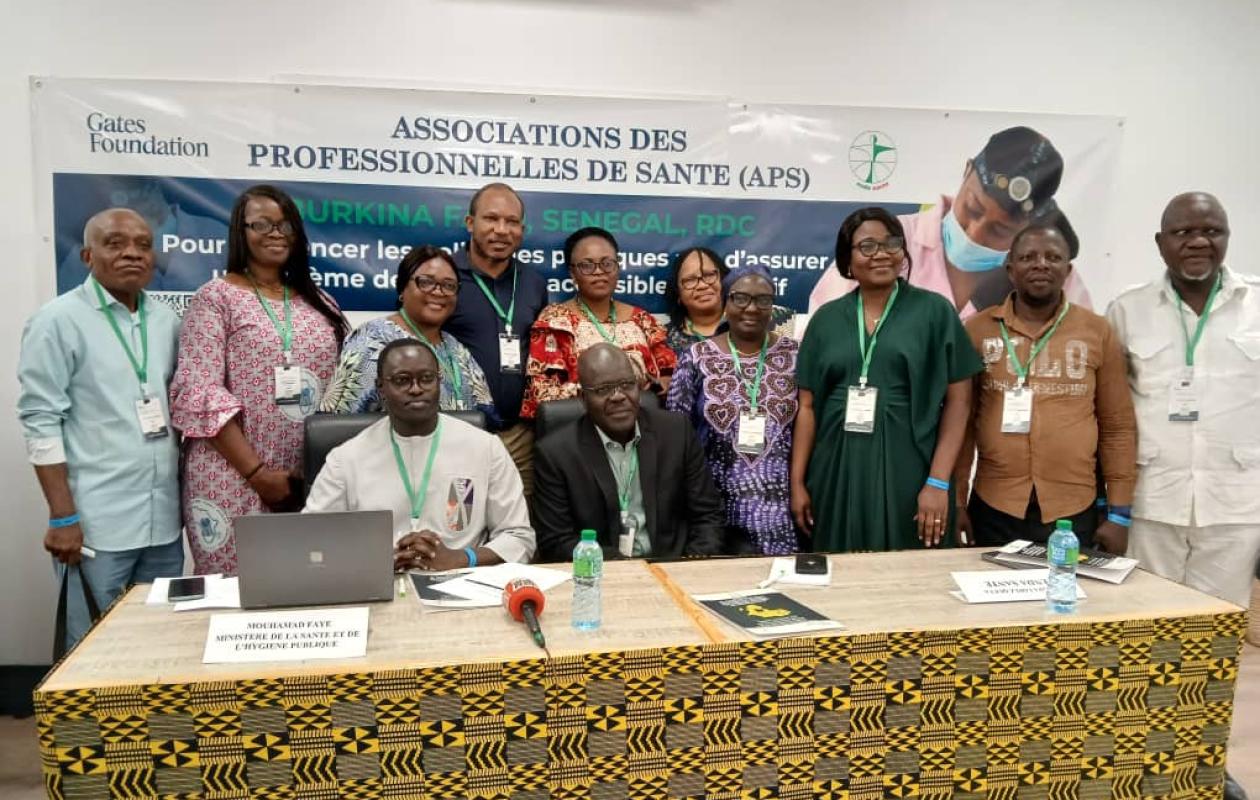
Crises sécuritaires et épidémies freinent les acquis en santé : Des associations de RDC, du Burkina et du Sénégal au cœur du renforcement des systèmes sanitaires
Burkina Faso and the Democratic Republic of Congo (DRC) are going through a critical period where the progress made in the health sector is being seriously compromised. In addition to security challenges, recurring epidemics and financial constraints are hampering people's access to essential care.
In the DRC, the situation is equally worrying. Persistent violence in the east of the country disrupts the functioning of health facilities, which are often looted or destroyed. Massive population displacements promote the spread of diseases such as cholera and measles. Added to this are recurring outbreaks of Ebola and the Mpox (monkeypox) epidemic, which particularly affects children. The fragility of the health system, combined with a lack of resources, is slowing the response to these health emergencies. Senegal, for its part, has recorded its second case of an Mpox epidemic.
Thus, the progress made in recent years in the health sector risks being compromised. During a monitoring, evaluation and training workshop for associations from these countries, after discussing the security context in Burkina Faso and the DRC, and epidemics such as Ebola and Mpox, they noted other constraints related to remittances and the accessibility of certain areas.
ENDA Santé brought together around thirty representatives of health professional associations (APS) from Senegal, Burkina Faso, and the DRC in Mbour for a monitoring, evaluation, and training workshop. This meeting, organized with the support of the Bill and Melinda Gates Foundation, is part of the regional project launched in 2022 to strengthen health systems through advocacy and collaboration with APS.
The workshop provided an opportunity to take stock of the implementation of action plans developed by the associations since the project began. The aim was to identify best practices, highlight challenges encountered, and adjust strategies for the future.
"The role of associations is essential in achieving our public health objectives. Their proximity to the population and their civic engagement make them essential partners of the State," declared Mouhamad Faye, representative of the Minister of Health and Social Action.
"The associations, initially lacking experience in planning and advocacy, have now acquired new skills that enable them to better identify health priorities and develop appropriate strategies," explained Dr. Papa Djibril Ndoye, Deputy Director of Enda Santé.
Despite these challenges, significant progress has been made. The doctors, gynecologists, midwives, and nurses attending the workshop reaffirmed their commitment to strengthening healthcare provision and advocating for the needs of populations, particularly the most vulnerable.
Through this project, Enda Santé and its partners intend to build, alongside health authorities, a more resilient, more equitable health system focused on the needs of communities.
Commentaires (0)
Participer à la Discussion
Règles de la communauté :
💡 Astuce : Utilisez des emojis depuis votre téléphone ou le module emoji ci-dessous. Cliquez sur GIF pour ajouter un GIF animé. Collez un lien X/Twitter ou TikTok pour l'afficher automatiquement.